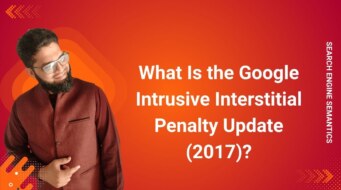In the SEO and web context, privacy is about controlling what data websites track, how it’s stored, and whether users understand or consent. Core principles include:
- Consent: Users must actively Opt-In before tracking or advertising cookies run.
- Transparency: Clear disclosure via Privacy Policies and banners.
- Access & Deletion: Users can request their data or demand erasure.
- Security & Accountability: Data controllers are legally accountable for breaches.
- Cross-Border Rules: Stricter governance on sharing personal data between jurisdictions.
For SEO teams, these rules translate into shifts in Analytics, Attribution Models, and even the visibility of Legal Pages in the Search Engine Results Page (SERP).
Privacy and Search Engine Optimization (SEO) are no longer parallel tracks in digital marketing—they now intersect at almost every level. With the enforcement of regulations like the EU’s GDPR (General Data Protection Regulation) and California’s CCPA (California Consumer Privacy Act), along with a wave of global data protection laws, marketers face a new paradigm.
For years, SEO strategies leaned on granular user data, Click-Through Rate (CTR), Dwell Time, and behavioral targeting. But today, consent, transparency, and data minimization dictate how websites can collect and process information. These shifts don’t just shape compliance—they influence rankings, Page Speed, Crawl Budget, and the foundation of Technical SEO.
Key Privacy Laws Shaping SEO
Since May 2018, GDPR has set the benchmark for global privacy rules. Its scope extends beyond the EU (European Union), affecting any website processing EU resident data.
Core Impacts on SEO:
-
Explicit consent before loading cookies (impacting Google Analytics).
-
Heavy fines—up to €20 million or 4% of annual turnover.
-
The ePrivacy Regulation (in progress) extends cookie law, affecting how Interstitials and banners are designed.
CCPA & CPRA (California, USA)
The CCPA (2020) and its amendment, CPRA, provide California residents the right to access, delete, and opt out of the “sale” of their personal data.
Core Impacts on SEO:
-
Broader “sale/sharing” definitions may classify ad targeting and retargeting as data sales.
-
Stricter penalties: up to $7,500 per intentional violation.
-
Businesses must allow easy Opt-Out mechanisms.
Other Global Laws
-
Brazil’s LGPD, Canada’s PIPEDA, and multiple new U.S. state laws (2025) mirror GDPR/CCPA frameworks.
-
These trends accelerate the shift toward First-Party Data SEO.
-
Global fragmentation complicates international strategies, raising stakes for International SEO.
How Privacy Laws Affect SEO (Risks & Opportunities)
Privacy regulations don’t alter Search Engine Algorithms directly. Instead, they constrain tools and workflows that fuel SEO:
-
Analytics & Tracking
-
Fewer users consent → lower visibility in Conversion Rate Optimization (CRO).
-
Server-Side Tracking emerges as a workaround.
-
-
Performance & Page Speed
-
Consent scripts slow load times, hurting Core Web Vitals.
-
-
Indexing & Crawlability
-
Crawlers must access privacy/legal pages, but over-indexing can waste Crawl Budget.
-
-
Personalization Limits
-
Privacy-first rules reduce the effectiveness of Personalized Search and retargeting strategies.
-
-
Local SEO Shifts
-
With less behavioral profiling, Local SEO relies more on Local Citations, Google Maps, and reviews.
-
-
Trust & Reputation
-
Transparent practices boost Online Reputation Management (ORM).
-
Best Practices: Thriving in a Privacy-First SEO Landscape
Regulations like GDPR and CCPA should not be viewed as obstacles, but as opportunities to build a more sustainable, ethical SEO strategy. Here are best practices that help you stay compliant while strengthening long-term visibility.
1. Consent Management & Tag Governance
A compliant Consent Management Platform (CMP) is now foundational for SEO teams. It ensures you only load non-essential scripts (analytics, retargeting pixels, ad trackers) after users explicitly Opt-In.
-
Use Google Tag Manager or equivalent tools for conditional firing.
-
Maintain audit-ready consent logs (timestamps, preferences).
-
Minimize “dark patterns” in banners, which regulators increasingly penalize.
2. Server-Side & Privacy-First Tracking
Traditional client-side tracking is increasingly unreliable. Transition to server-side tagging, which allows you to control, anonymize, or aggregate data before it leaves your server.
-
Tools like GA4 (Google Analytics 4) integrate better with privacy-first setups.
-
Use Attribution Models designed for data gaps.
-
Consider First-Party Data SEO strategies that rely on consented information, surveys, and User Engagement signals.
3. Minimize Data Collection & Retention
Compliance requires data minimization:
-
Avoid over-collecting personally identifiable information (PII).
-
Apply anonymization, pseudonymization, or aggregation for analytics.
-
Align with strict retention policies—data hoarding is now a liability.
This practice also supports leaner Technical SEO by reducing unnecessary tracking scripts that bloat your site.
4. Transparency & User Experience
Clear, honest communication is not just legal—it builds trust.
-
Publish accessible Privacy Policies and cookie notices.
-
Avoid manipulative Interstitials that frustrate users and may hurt rankings under Google’s Intrusive Interstitial Penalty.
-
Ensure your User Experience (UX) remains smooth when consent banners are displayed.
5. Alternative SEO Signals
As behavioral targeting weakens, focus on evergreen SEO signals less impacted by privacy laws:
-
Content Marketing and high-quality editorial assets.
-
Structured Data (Schema) to boost Rich Snippets.
-
Internal Links and optimized Website Structure.
-
Backlinks and Link Equity.
-
Localized trust signals: NAP Consistency, reviews, Google My Business.
6. Monitoring & Privacy-Aware Attribution
SEO measurement under privacy constraints means accepting data blind spots.
-
Track Organic Traffic trends holistically instead of obsessing over exact Keyword Rankings.
-
Use blended attribution with modeled insights.
-
Correlate dips in conversions with changes in consent rates.
7. Cross-Functional Collaboration
Privacy-first SEO requires close collaboration between:
-
Legal teams (to interpret compliance obligations).
-
Engineering teams (to implement server-side tagging, CMP).
-
SEO & Content teams (to pivot strategies toward content-driven authority).
Future Trends in Privacy & SEO
The privacy landscape is evolving rapidly. SEO teams must prepare for:
-
Cookieless Future
Browsers are phasing out third-party cookies. Marketers will rely on contextual targeting and zero-party data collection. -
Stricter Enforcement
Authorities increasingly penalize dark patterns and non-compliant consent UIs. -
Privacy-Enhancing Technologies (PETs)
Differential privacy, encryption, and federated learning may allow analytics without exposing PII. -
AI & Data Regulation
AI-driven personalization raises fresh compliance concerns. Expect scrutiny around AI-Driven SEO and large language models trained on user data. -
Global Fragmentation vs. Harmonization
SEO strategies must adapt to either a unified privacy framework or a patchwork of jurisdictional rules affecting International SEO. -
Privacy by Design in SEO
Websites will increasingly integrate compliance into the core architecture, from Crawlability to Content Management Systems.
Final Thoughts on Privacy & SEO
Privacy-first regulation is not the end of data-driven SEO—it’s the rebirth of sustainable optimization. By embedding privacy into workflows, relying on first-party and zero-party data, and leaning on content and trust signals, businesses can thrive without intrusive tracking.
The key to future-proof SEO is clear: adapt early, build user trust, and align compliance with performance.



